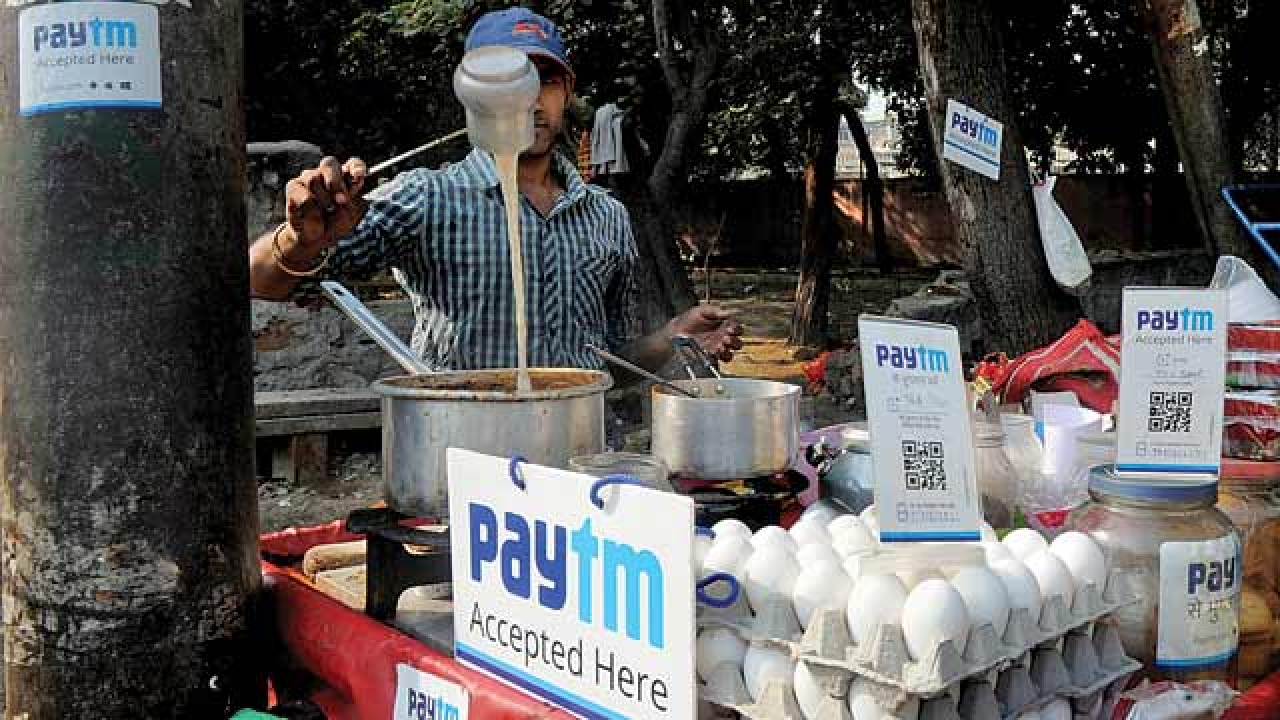The digitalization has impacted the growth of the gig economy. Professionals across all industrial sectors are favouring flexible engagement models to suit their convenience. They are getting a chance to work on desired projects based on their expertise and time. The workforce demographics are changing, thus shaping the Future of Work. The pandemic has accelerated the process and is working as catalysts in speeding up the transformation processes. Several gigs, MSMEs, large organizations and traditional incumbents are experimenting with business strategies in recent times.
Global digital order is slowly forming a structure. The developing nations like India embraced the tide of digitalization mostly in this decade. This decade has been phenomenal in making India prominent amid the rising tide of the gig economy. The decade has also seen the emergence of On-Demand services.
The impact of digitalization on the gig economy has been extensive. Thus, creating several rooms for the thriving of both these phenomena. The gig economy has germinated following the path of digital revolutions of this century. Several gigs are mostly technology-based, contributing significantly to the Fourth Industrial Revolution or Industry 4.0.
The business organizations and companies have started outsourcing their work to independent freelancers, experts, and consultants. They are onboarded on the basis of project requirements and their expertise relevant to the given project. The projects can be short term or long term.
The convenience of flexible engagement models and suitable remuneration scales are lucrative to the resources. The people want to be their own bosses. Freedom and flexibility are lucrative for sure. The organizations can relieve the burden of permanent staffing by opting for on-demand service providers. Both in developed and developing nations, the tide of the gig economy is rising.
Digital Transformation on Industries
Diverse social and economic sectors are getting transformed or let’s say re-imagined by the cropping up of digital platforms. For instance, the commerce sector is digitalized by Amazon, the information sector by Google, and urban transportation by ride-sharing service platforms like Ola and Uber, Food sector by delivering apps like Swiggy, education sector by Unacademy, payment structures by Paytm, etc. Companies owning these platforms are large organizations, harnessing the maximum benefits and productivity from the age of Digital Revolutions.
The impact of digitalization on the gig economy has created new avenues for creating job opportunities. Entrepreneurship, solopreneurship, seamless customer experience, experimenting with social license, and also commenced competition with the traditional incumbents. The digital dependency of the gig economy has witnessed technology-centric communication models and digital intelligence.
The rise of the gig economy is compelling the payment industry to restructure its business to business (B2B) transactions. The payment industry is adapting to the complex technological leap suitable for both the gig workers and the consumers they serve. They are reaping maximum benefits and turning the spree of digital transformations towards their favour.
Major Growth Potential Of Gig Economy
There are certain aspects of the gig economy that depend on the developed world infrastructure. The emerging gig economy has major growth potential. It attracts investments in infrastructure, and this investment can be governmental and also independent. The rising gig economy can cushion the internet penetration in the nation, as the demand to get online grows.
Several gigs are growing and expanding, creating several job opportunities in the country. The gig ecosystem plays a major role in bridging the gap of unemployment. This is visible especially in a developing country with a high population density like India.
As reported by Forbes, “Resourceful workers can even use free job-posting platforms to start their own businesses. After all, micro-entrepreneurship—as the Deloitte Institute of Innovation and Entrepreneurship has studied—is far more prevalent in developing countries than in the US (which makes sense when you note their familiarity with informal economies, as noted above). Bolivians, for example, “engage in entrepreneurial activity at three times the rate as Americans and five times the rate as those in the UK.” Gig economy platforms make it unprecedentedly easy for these ambitious micro-entrepreneurs to find work for themselves, or to hire out.”
The gig economy has accelerated in recent times. This is giving scope to entrepreneurs, soloprenuers, micro small and medium enterprises (MSMEs) and several subject matter experts (SMEs) to explore the emerging model of employment. Many of the above-mentioned enterprises may lack the required digital marketing strategies.
The gig economy platforms may be equipped with a tech-savvy marketing approach. By connecting the service providers to the large and diverse user base, the gig economy can function as digital marketing tools. This can be highly profitable for the MSMEs.
“The Guardian hypothesized that developing economies will embrace mobile marketing even faster than the US and UK have. (The numbers back this up—the American Marketing Association notes that while only one-quarter of Africans have a bank account, 70% have a mobile phone.) This means that while workers are using their phones to find jobs, the businesses advertising their jobs are getting a sweet bonus: marketing.”
Flexibility and Convenience
The gig economy challenges traditional business models. Their workers had to follow the strict rules and regulations regarding the engagement models. The employer centric strategies are losing relevance in recent times. This is making the flexibility and convenience of the gig economy highly popular among the masses. Experts believe that the developing countries are comfortable with informal economies. So shifting towards the gig economy will not be difficult after all; rather it shall be a very smooth and spontaneous one.
India has the highest number of young population, aged between 20-30 years. The rising tide of the gig economy is highly interesting and lucrative for them. They can work on their desired projects, more than one at a time. As per the study conducted by Brookings Institute, “In developing countries where labour markets are more informal, the gig economy has been the de facto standard for some time.”
There are digital job-seeking platforms where experts and freelancers can look for their suitable job opportunities, part-time, full time or as a freelancer. The work nowadays is secured by apps and platforms; one can complete projects or any given tasks by working at his laptop or desktop. Personal laptop and internet availability are the basic requirements for project execution during the era of digitalization.

There are several online platforms, like Vedak, that can connect the expert professionals with top gigs for project execution as per the required expertise. If one has the expertise and will, then he/she can prosper in the domain of on-demand service. It is convenient, one can work from home remotely or from the client location. One can work on the weekends and also after the office hour.
The gig economy has expanded numerous creative and convenient ways for optimizing value addition in business growth. This allows personal and professional developments. The Government of India has launched initiatives like “Digital India” and “Make in India” to accelerate the growth of the gig economy in the country.
Hi-tech solutions used In Gig Economy
The key resource of digital space is Big Data and Digital Intelligence. In recent times, a lot of emphases is given on the collection and analysis of big data. Big Data, that is the theoretical treatment of information and Digital Intelligence that is technological tools like Artificial Intelligence (AI), Machine Learning, Internet of Things (IoT) are real game-changers. They are developing an autonomous “social brain” and “social nervous system” running within and across several industrial sectors and diverse market landscape.
From the daily lives of people getting organized around the mobile phones to small shopkeepers and vendors registering on digital payment platforms, to global digital corporations, the trends towards the changing socio-economic dimensions are becoming more prominent.

Source: DNA India
Mankind has reached on the threshold of a digital society, where digital sovereignty is compromised. People are feeling more comfortable with every passing day to expose sensitive information about themselves on digital platforms accessed by all.
The gig economy has managed to earn the trust of the vast user base. The users will not hesitate to leak information on the site. For instance, a job seeker will not hesitate to upload his resume containing his/her name, address, phone numbers, etc on the digital platforms accessed by millions of users.
The gig economy has made the people internet-friendly to a great extent, but at the same time, they are not immune to cyber crimes like data theft and security breach. Internet dependency is rising, so is the chance of cybercrimes. Easy availability of internet, smartphone penetration, increasing literacy and rising of the per capita income has contributed to the rise of the gig economy in the age of digitalization.
Conclusion
The gig economy is revolutionizing the social order, targeting the convenience and demands of new-age consumers. Newer job opportunities, application of highly advanced technological tools, increasing trust of the people on the digital platforms have become the order of the day. The emerging employment structures and workforce demographics are some of the effects that the gig economy has on society. The gig economy is shaping the Future of Work gradually in recent times. But suddenly accelerated by the outbreak of the pandemic.

